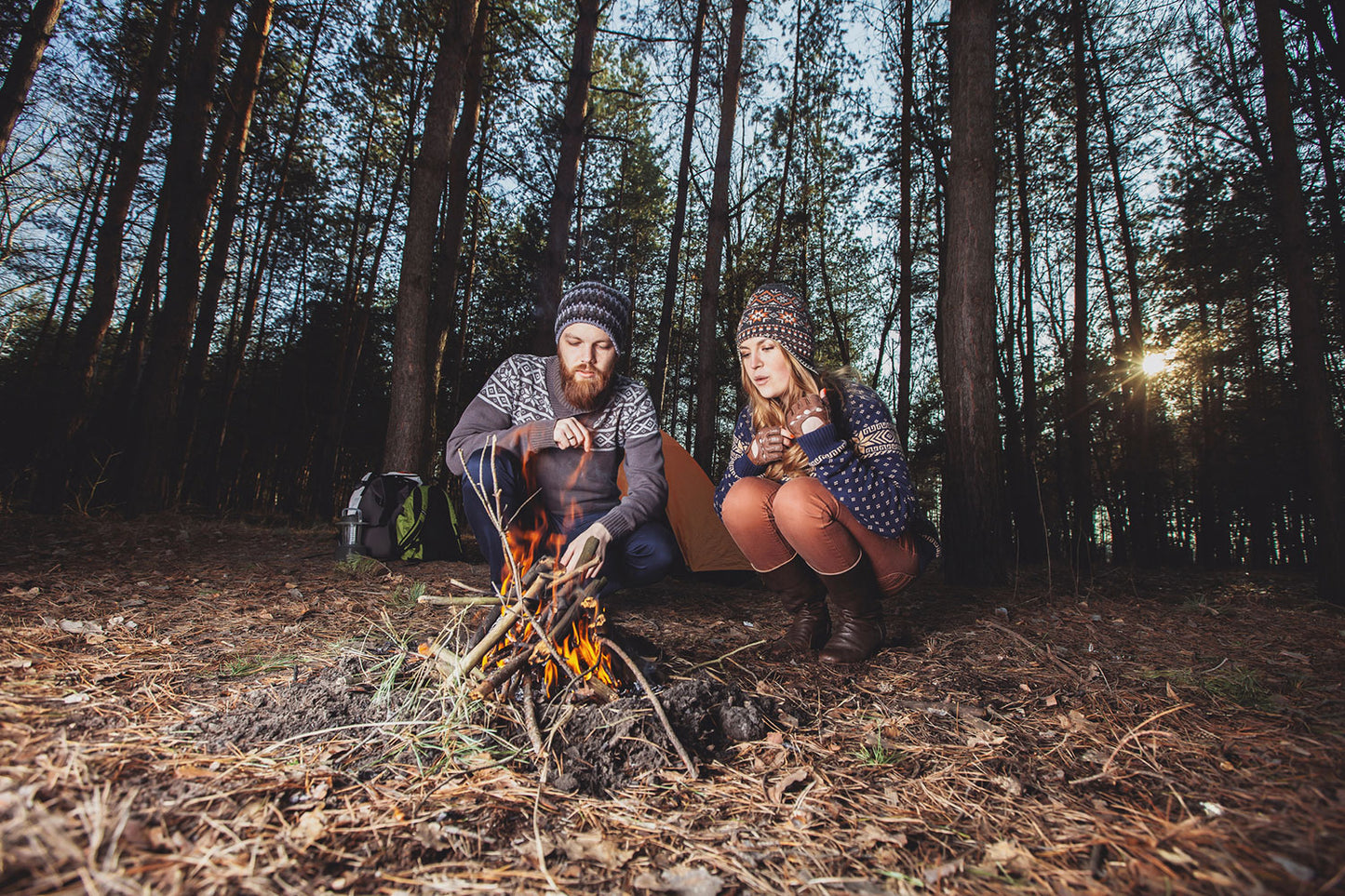
In an emergency, knowing how to take care of yourself and your loved ones can make all the difference. Whether you're caught in the wilderness, facing a natural disaster, or dealing with an unexpected crisis, having basic survival skills can be lifesaving. Here, we'll cover some essential survival techniques that everyone should know.
Fire-Starting Methods Without Matches
Fire is crucial for warmth, cooking, and signaling for help. Knowing how to start a fire without matches is a vital survival skill.
Fire-Starting Techniques:
- Friction Method: Use a bow drill or hand drill to create friction and generate heat. It’s labor-intensive but effective.
- Flint and Steel: Strike a piece of flint against steel to create sparks. This method works well with dry tinder.
- Fire Plough: Rub a wooden stick along a groove in a piece of wood to produce friction and heat.
- Magnifying Glass: Focus sunlight through a magnifying glass onto tinder to ignite it. This method requires bright sunlight.
Tinder: Always carry dry, flammable material like cotton balls soaked in petroleum jelly, dry leaves, or bark shavings.
Building a Shelter in the Wilderness
A good shelter protects you from the elements, keeping you warm and dry.
Shelter-Building Tips:
- Location: Choose a site that's flat, dry, and protected from the wind. Avoid low-lying areas that could flood.
- Natural Materials: Use branches, leaves, and other natural materials to construct your shelter. A lean-to, A-frame, or debris hut are all effective options.
- Insulation: Ensure your shelter has plenty of insulation. Use leaves, grass, or pine needles to create a thick layer that will trap heat.
- Rainproofing: Make sure your shelter is waterproof by layering materials and ensuring that the roof has a steep enough pitch for water runoff.
Finding and Purifying Water Sources
Water is essential for survival. Knowing where to find it and how to purify it is crucial.
Finding Water:
- Natural Sources: Look for streams, rivers, lakes, and ponds. Dew and rainwater can also be collected using tarps or containers.
- Vegetation: Plants like vines and cacti can provide water. Roots and certain leaves can also be a source of moisture.
- Solar Stills: Dig a hole, place a container in the center, cover with plastic, and weight down the center of the plastic to catch condensation.
Purifying Water:
- Boiling: Boil water for at least one minute to kill pathogens. At higher altitudes, boil for three minutes.
- Filtration: Use a portable water filter or make a filter using sand, charcoal, and gravel.
- Chemical Treatments: Water purification tablets or drops containing iodine or chlorine can disinfect water.
- UV Light: Portable UV purifiers can destroy microorganisms.
Basic First Aid and Medical Skills
Having basic first aid skills can save lives in emergencies. Here are some essential techniques:
Basic First Aid:
- CPR: Learn how to perform CPR. Remember the ratio of 30 chest compressions to 2 breaths.
- Bleeding Control: Apply direct pressure to stop bleeding. Use a tourniquet if necessary and know how to create one.
- Fractures: Immobilize the injured area using splints. Avoid moving the person unnecessarily.
- Burns: Cool the burn with running water for at least 10 minutes. Cover with a sterile, non-adhesive dressing.
- Hypothermia: Warm the person gradually, using blankets and warm liquids. Avoid direct heat sources like hot water or heaters.
Emergency Kit Essentials:
- Bandages and Dressings: Various sizes for different wounds.
- Antiseptics: Alcohol wipes, hydrogen peroxide, or iodine to clean wounds.
- Medications: Pain relievers, antihistamines, and any personal medications.
- Tools: Tweezers, scissors, and a multi-tool.
- Emergency Blanket: To retain body heat.
These essential survival skills can make a significant difference in an emergency. By learning and practicing these techniques, you’ll be better prepared to handle unexpected situations. Remember, preparation is key, and the more you know, the safer you'll be. Whether you're an outdoor enthusiast, a prepper, or just someone who wants to be ready for anything, mastering these survival skills is a wise investment in your safety and peace of mind.
